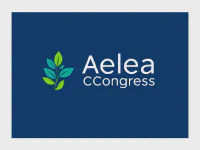Understanding Alcohol Addiction in Portland: Causes and Solutions

Understanding Alcohol Addiction in Portland
Understanding Alcohol Addiction in Portland is crucial for both individuals and families affected by this pervasive issue. Alcohol addiction, also known as alcoholism or alcohol use disorder (AUD), affects countless residents in Portland, Oregon, often leading to devastating personal and societal consequences. This addiction does not discriminate, impacting people from all walks of life, and often stems from a multitude of factors including genetics, environment, and personal history. It is essential to recognize the symptoms and take actionable steps towards awareness, treatment, and recovery in our local communities.
The prevalence of alcohol addiction in Portland has raised significant public health concerns, making it imperative to address this issue comprehensively. Understanding alcohol addiction in Portland emphasizes the need for education about the risks associated with excessive drinking, as well as the importance of seeking help. Communities must work together to destigmatize addiction, encouraging individuals to come forward and seek treatment whether they are experiencing addiction themselves or are affected by someone else’s struggle with alcohol dependence.
In Portland, the understanding of alcohol addiction has evolved over the years, reflecting changing perceptions and treatment approaches. Many individuals find themselves caught in a cycle of dependency on alcohol due to various factors such as stress, trauma, social influences, and mental health disorders. Understanding Alcohol Addiction in Portland involves recognizing these underlying causes and offering tailored support for recovery efforts, which is central to addressing the addiction crisis in the city. Public policies and community programs play a vital role in facilitating this understanding and providing necessary resources.
Furthermore, the community must be informed about the serious consequences of alcohol addiction, which extend far beyond the individual to families and society as a whole. Understanding Alcohol Addiction in Portland entails not only awareness of the health risks associated with excessive drinking but also an appreciation for the emotional and financial strains that addiction imposes on loved ones and communities. Through educational initiatives and support networks, we can help bring clarity to this often misunderstood disorder, fostering an environment conducive to healing and recovery.
Understanding Alcohol Addiction in Portland also means recognizing the numerous pathways to recovery available to those struggling with addiction. From local rehabilitation centers to community support groups, there are various resources that aim to assist individuals on their journey to sobriety. The journey to recovery is complex and unique for everyone, but with the right tools and support systems in place, individuals can find hope and reclaim their lives.
Causes of Alcohol Addiction in Portland
Alcohol addiction in Portland is influenced by various socioeconomic factors, including poverty, unemployment, and lack of access to health care. These elements can contribute to higher rates of alcohol abuse as individuals may seek relief from stress or despair through drinking. Furthermore, the environment plays a significant role, as communities with a high density of bars and social gatherings can inadvertently normalize excessive drinking behavior. Addressing these socioeconomic issues is fundamental in prevention efforts and achieving successfully recovery in the region.
The cultural attitudes towards alcohol consumption in Portland also contribute to the addiction crisis. In a city renowned for its craft beer and wine culture, drinking is often encouraged as part of social life. This cultural acceptance can lead individuals, especially younger adults, to perceive heavy drinking as normal or even desirable, thus increasing the risks of developing addiction. Educational campaigns focused on promoting responsible drinking and providing alternatives for socializing without alcohol are essential in changing these prevailing attitudes.
Addressing the complexities of rehabilitation requires a deep dive into Understanding alcohol use disorders and their treatment for effective healing.
Mental health disorders are closely linked to alcohol addiction in people living in Portland. Conditions such as anxiety, depression, and PTSD can drive individuals to self-medicate with alcohol, which often leads to an escalating cycle of dependence. Mental health support and substance abuse treatment must work in tandem to address these co-occurring disorders effectively, leading to better outcomes for those struggling with alcohol addiction in the community.
Effects of Alcohol Addiction
The health consequences of alcohol abuse are severe and wide-ranging. Chronic alcohol consumption can result in liver disease, cardiovascular problems, and a higher risk of developing various cancers, significantly impacting individuals’ physical well-being. Additionally, alcohol addiction can exacerbate pre-existing health issues and hinder recovery from other diseases. Promoting awareness of these health risks is crucial in helping the community understand the severity of the problem and encourage individuals to seek help.
Alcohol addiction can have profound impacts on families and relationships. It often leads to breakdowns in communication and trust, resulting in emotional distress for both the individual and their loved ones. Families may experience financial instability due to the costs associated with addiction, including treatment expenses and lost income. Understanding the impact of addiction on the family unit is vital in promoting educational programs that provide support for both individuals suffering from addiction and their families.
The economic costs associated with alcohol addiction extend beyond personal expenses to include increased healthcare costs, lost workplace productivity, and criminal justice expenses. Communities in Portland face economic burdens due to the need for additional public health resources, treatment programs, and emergency services geared towards addressing alcohol-related incidents. Acknowledging these economic impacts can help motivate local government and organizations to invest in prevention and recovery efforts.
Recovery Options in Portland
Portland offers various local rehabilitation centers and resources aimed at helping individuals overcome alcohol addiction. Facilities provide comprehensive treatment programs that often include detoxification, counseling, and personalized recovery plans tailored to the needs of each individual. By offering diverse treatment options including inpatient, outpatient, and residential recovery programs, Portland aims to cater to the varying needs of those seeking help.
Support groups and community programs play a vital role in recovery options for individuals in Portland. Organizations such as Alcoholics Anonymous and SMART Recovery offer peer support networks that create a sense of community and shared experience. These groups not only provide encouragement but also practical strategies for coping with addiction, fostering lasting bonds that support sobriety and personal growth throughout recovery journeys.
Therapy and counseling are integral components of recovery in Portland. Mental health professionals equipped with specialized training in addiction are essential in addressing the emotional and psychological aspects of alcohol dependence. Therapy can help individuals process their feelings, develop coping mechanisms, and create plans to maintain sobriety in the long term. Ensuring that therapy is accessible to those in need is crucial to improving recovery rates throughout the city.
Prevention Strategies
Education and awareness initiatives are paramount in preventing alcohol addiction in Portland. Schools, community organizations, and local governments must work together to promote programs focused on responsible drinking, the risks of alcohol abuse, and the importance of mental health support. By informing the community of the dangers associated with alcohol consumption, we can equip individuals with the knowledge they need to make healthier choices.
Community efforts to reduce alcohol abuse can also help mitigate the effects of alcohol addiction. Local organizations often collaborate to provide outreach programs that target high-risk groups and promote healthy coping strategies. Initiatives such as community events that focus on alcohol-free activities can help reshape societal norms, making it easier for individuals to socialize without the pressure to drink excessively.
The role of public policy in prevention strategies cannot be overstated. Advocacy for stricter regulations on alcohol sales, increased funding for addiction resources, and improved access to mental health services are necessary steps towards addressing the alcohol addiction crisis in Portland. Policymakers must prioritize public health initiatives aimed at reducing substance abuse and supporting recovery services to create a healthier community for all.
Personal Stories and Experiences
Testimonials from individuals in recovery provide valuable insights into the struggles and triumphs associated with overcoming alcohol addiction. These personal stories shed light on the complexity of addiction and highlight the importance of support systems, resilience, and determination on the journey to recovery. Sharing such experiences can foster connection and understanding, motivating others to seek help when facing similar battles.
The impact of addiction on families is often profound, as loved ones bear witness to the struggles and hardships of their relatives. Many families report feelings of helplessness, frustration, and grief as they navigate their loved ones’ addiction. Personal stories outlining these experiences can serve as powerful reminders of the need for family support and resources, emphasizing that healing extends beyond the individual to include families and communities as a whole.
Support channels and networks are essential for those affected by alcohol addiction, offering a sense of community and shared understanding. These networks include not only friends and family but also local organizations, recovery groups, and mental health professionals who can provide ongoing support throughout the recovery process. By fostering these connections, individuals can find encouragement and guidance while navigating their unique journeys toward sobriety.
Treatment Modalities
Detoxification processes represent the first step in many treatment programs for alcohol addiction in Portland. Medical detoxification helps stabilize individuals in withdrawal, minimizing discomfort and reducing the risk of serious health complications. Properly managed detox facilities in the area ensure that individuals are given the necessary medical supervision for their safety and well-being during this critical phase of recovery.
Medication-Assisted Treatment (MAT) has emerged as a powerful tool in treating alcohol addiction, combining medications with counseling and support services. In Portland, healthcare providers may prescribe medications such as naltrexone or acamprosate to assist in managing cravings and reducing the desire for alcohol consumption. This holistic approach has proven to be an effective strategy in addressing the complexities of addiction and contributing to long-term recovery success.
Holistic and alternative therapies are increasingly recognized as beneficial modalities in treating alcohol addiction. Approaches such as mindfulness, yoga, and art therapy are offered at many rehabilitation centers in Portland, providing individuals with diverse options to complement traditional treatment methods. By focusing on the whole person rather than just the addiction, these therapies encourage healing and personal growth, leading to a more fulfilling recovery experience.
